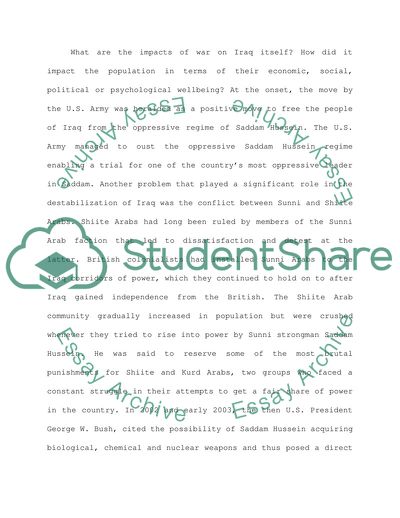Cite this document
(Role of the Iraq War in World Politics Essay Example | Topics and Well Written Essays - 3500 words, n.d.)
Role of the Iraq War in World Politics Essay Example | Topics and Well Written Essays - 3500 words. https://studentshare.org/military/1861035-iraq-war2
Role of the Iraq War in World Politics Essay Example | Topics and Well Written Essays - 3500 words. https://studentshare.org/military/1861035-iraq-war2
(Role of the Iraq War in World Politics Essay Example | Topics and Well Written Essays - 3500 Words)
Role of the Iraq War in World Politics Essay Example | Topics and Well Written Essays - 3500 Words. https://studentshare.org/military/1861035-iraq-war2.
Role of the Iraq War in World Politics Essay Example | Topics and Well Written Essays - 3500 Words. https://studentshare.org/military/1861035-iraq-war2.
“Role of the Iraq War in World Politics Essay Example | Topics and Well Written Essays - 3500 Words”. https://studentshare.org/military/1861035-iraq-war2.


